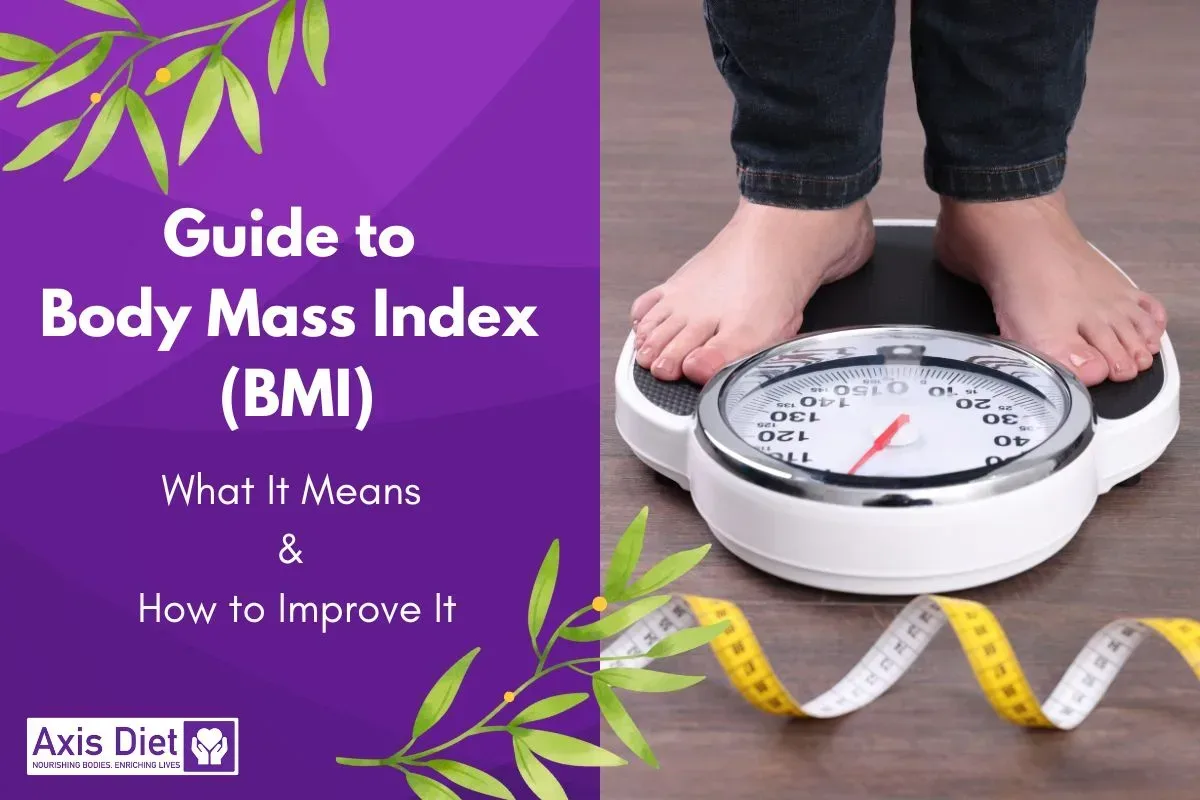In this article, we unravel the mysteries of BMI. From its definition and calculation to its significance in health and ways to optimize it, we’ve got you covered.
Introduction to BMI
Body Mass Index (BMI) is not just a number but a reflection of your health based on your weight and height. It serves as a valuable tool to understand if you’re carrying an optimum weight for your stature. While it’s generally a reliable indicator of body fat, there are exceptions, like a muscle-bound athlete might be categorized as overweight.
Learn more about the intricacies of BMI with our BMI Calculator, offering a deeper perspective on Body Mass Index.
Interestingly, as you grow taller, your body accumulates more tissue, naturally weighing more. This relationship between height and weight forms the foundation of BMI.
How is BMI Calculated?
Want to compute your BMI? The process is simple. Use our online BMI Calculator. Or, if you’re a math enthusiast, apply this formula:

For instance, with a weight of 68 kg and height of 1.65 meters, your BMI is approximately 24.98.
Being aware of your BMI can significantly influence your health choices. An abnormal BMI often suggests potential health concerns, making it imperative to maintain an optimum range.
Perfect BMI Range: Men, Women & Children
For adults, the golden range lies between 18.5 and 22.9. To simplify:
- Underweight (<18.5): While being underweight might be seen as desirable in certain cultural contexts, it carries its own set of health risks. These include malnutrition, weakened immune function, osteoporosis, and a potential increase in the risk of surgical complications.
- Normal Weight (18.5 – 22.9): Falling within this range suggests that one’s weight may be in a healthy range for their height. However, even those within this range can still have health concerns if they have poor dietary habits or lead sedentary lives.
- Overweight (23.0 – 24.9): Being overweight increases the risk for several chronic conditions, including cardiovascular diseases, type 2 diabetes, and certain cancers.
- Obesity (≥25.0): Obesity amplifies the risk for many of the same conditions that being overweight does, but at a more heightened level. It’s also linked to more severe conditions like sleep apnea, fatty liver disease, and more.
Health Implications of BMI
BMI does not differentiate between weight from fat and weight from lean muscle. Therefore, someone who is muscular might fall into the “overweight” or “obese” category even if they have low body fat. This highlights the need to consider other metrics and tests (like body fat percentage) in conjunction with BMI for a more comprehensive understanding of health.
Your BMI is more than a number; it’s a health predictor. A suboptimal BMI, either too low or too high, correlates with potential health risks.
Health Complications Associated with BMI Extremes
- Cardiovascular Diseases: High BMI levels, especially in the overweight and obese ranges, correlate with an elevated risk of heart attacks, strokes, and high blood pressure.
- Metabolic Syndromes: Being overweight or obese can be linked to a host of metabolic disturbances, including insulin resistance, elevated blood sugar levels, unfavorable cholesterol profiles, and more.
- Respiratory Concerns: High BMI can lead to breathing problems, including asthma and sleep apnea. The excess fat around the neck and chest can restrict the airways, leading to disturbed sleep patterns.
- Joint and Bone Ailments: Carrying excess weight can exert more pressure on the joints, leading to conditions like osteoarthritis. Additionally, being underweight might heighten the risk of osteoporosis and bone fractures.
- Mental Health Concerns: There’s a strong connection between BMI and mental health. Being underweight, overweight, or obese can lead to various psychological issues such as depression, anxiety, and low self-esteem, often as a result of societal pressure and stigmatization.
- Cancer: High BMI levels are linked to an increased risk for several types of cancers, including breast, colon, and kidney cancers.
Socio-cultural Implications in India
Given the cultural diversity of India, there are varying perceptions of ideal body weight, often influenced by sociocultural norms, media, and peer groups. This has led to a mix of challenges, from the desire for thinness in certain urban settings to equating plumpness with prosperity and health in more traditional settings. Such beliefs can indirectly affect health outcomes, as they shape behaviors, dietary choices, and perceptions of health.
Strategies to Optimize BMI
Want to recalibrate your BMI? Here’s a roadmap:
- Adopt a Balanced Diet: Prioritize whole foods like fruits, vegetables, and fibers. Reduce junk food intake. Discover our article on getting the right nutrition for your body’s needs.
- Timely Meals: Never skip breakfast. Eat at regular intervals to foster better calorie utilization.
- Stay Active: Engage in at least 30 minutes of physical activity daily. From walking to workouts, every movement counts.
- Hydrate: Quench your body’s thirst with ample water. It aids digestion and might curb unnecessary snacking.
- Limit Alcohol: Alcohol is calorie-rich. Reduce its consumption for a healthier BMI.
While on your journey, use our BMR calculator to understand your basal metabolic rate, providing insights into your energy expenditure.
While BMI is a useful initial screening tool, it is not definitive. It’s essential to approach it as a starting point and not an end-all verdict on one’s health. Engaging with healthcare professionals to understand the broader context of one’s health, considering factors beyond just weight and height, is imperative for a well-rounded health assessment. A holistic approach, encompassing diet, physical activity, mental health, and regular medical check-ups, will ensure a more accurate and comprehensive understanding of one’s health.






[…] you’re underweight, at a healthy weight, overweight, or obese. We encourage you to use our BMI calculator to gain a clearer picture of your current health status. This knowledge can be the first step in […]